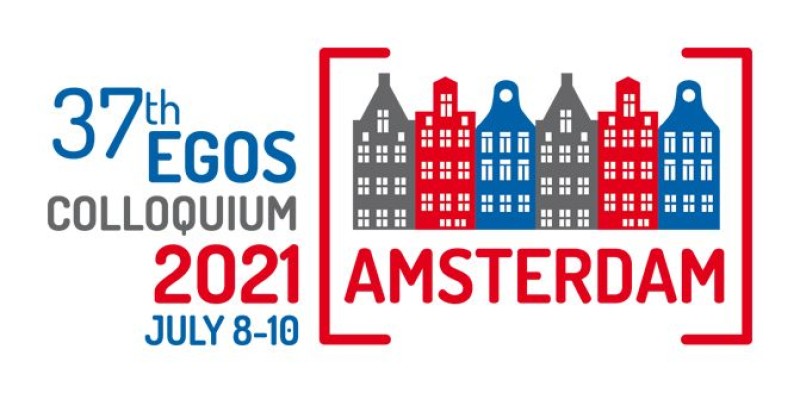Sub-theme 49: Organizational Memory Studies: Toward an Inclusive Research Agenda
Call for Papers
Collective memories are powerful factors in shaping both individual perceptions and social behaviour, and as such, are
important for organizing processes. Organizations are also arenas for the engagement of various social actors in collective
processes of remembering and forgetting. While organizational research has tended to adopt a psychological metaphor of storage
and retrieval of knowledge to understand organizational memory (e.g., Walsh & Ungson, 1991; Ren & Argote, 2011), recent
advances have also engaged with sociological perspectives on memory (e.g., Hatch & Schultz, 2017; Foroughi, 2019; Mena
et al., 2016; Ravasi et al., 2019). For instance, the interest in the social construction of organizational mnemonics (Coraiola
et al., 2015) has fuelled the development of theoretical approaches on the practices of remembering and the uses of the past
in achieving organizational strategies (e.g., Foster, et al., 2017; Wadhwani et al., 2018). Others have also looked at the
importance of organizations for broader processes of social remembering and forgetting, such as the perpetuation of inequalities
or the collective forgetting of corporate irresponsibility (e.g., Cutcher et al., 2019; Mena, et al., 2016). Yet, others have
highlighted the role of diverse stakeholders, such as employees, customers and investors/donors, in shaping an organizational
memory (Bell & Taylor, 2016; Foroughi & Al-Amoudi, 2019). Altogether, these examinations of memory in and around organizations
from various perspectives have been called ‘Organizational Memory Studies’ (OMS) (Rowlinson et al., 2010).
There is, however, still a divide in organizational research between early psychological, functionalist approaches and more
recent sociological, constructionist approaches to memory. This sub-theme aims to integrate these varied approaches to organizational
memory (e.g., psychological or sociological, functionalist or constructionist, collective or collected) together by encouraging
cross-fertilisation of ideas from a diverse range of organizational memory researchers. Our aim is to bring researchers with
different epistemological understandings, multiple theoretical perspectives, and distinct methodological approaches (e.g.,
storytelling, historical, visual, performativity) together to engage in the development of the broader field of OMS.
At a time when organizational scholars reflect on organizing for an inclusive society, this sub-theme also offers the opportunity
to explore inclusivity as a socio-historical construction. Our sub-theme explores such inclusivity by inviting organizational
memory researchers to look at the differences in the mnemonic practices of central and peripheral actors, the ways in which
remembering and forgetting promote inclusion and exclusion, as well as on the politics of inclusion/exclusion in memory practices.
We thus invite scholars with a variety of theoretical, methodological, and empirical perspectives to join us
in exploring the above themes. Below is a list of possible, but not exhaustive, topics and questions:
How does remembering and forgetting contribute to inclusion/exclusion?
How do actors negotiate the rights to speak about the past?
How does remembering take place at the margins of organizations?
What is the role of different stakeholders – including fringe stakeholders – on the dynamics of remembering and forgetting?
How do organizations manage social remembering and forgetting after misbehaviour by themselves and others? How do they manage the past in post-crisis and post-catastrophe societies?
Do specific contexts allow organizations to more aptly influence the formation or reconfiguration of social memories? What are the important structural features of these contexts?
We gratefully acknowledge the active involvement of Diego Coraiola (University of Alberta, Canada) and Jukka Rintamäki (University of Loughborough, United Kingdom) in making this sub-theme possible!
References
- Bell, E., & Taylor, S. (2016): “Vernacular mourning and corporate memorialization in framing the death of Steve Jobs.” Organization, 23 (1), 114–132.
- Coraiola, D.M., Foster, W.M., & Suddaby, R. (2015): “Varieties of history in organization studies.” In: P.G. McLaren, A.J. Mills & T.G. Weatherbee (eds.): The Routledge Companion to Management & Organizational History. New York: Routledge, 206–221.
- Cutcher, L., Dale, K., & Tyler, M. (2019): “‘Remembering as forgetting’: Organizational commemoration as a politics of recognition.” Organization Studies, 40 (2), 267–290.
- Foroughi, H. (2019): “Collective memories as a vehicle of fantasy and identification: Founding stories retold.” Organization Studies, first published online on May 6, 2019: https://journals.sagepub.com/doi/10.1177/0170840619844286.
- Foroughi, H., & Al-Amoudi, I. (2019): “Collective forgetting in a changing organization: When memories become unusable and uprooted.” Organization Studies, 41 (4), 449–470.
- Foster, W.M., Coraiola, D.M., Suddaby, R., Kroezen, J., & Chandler, D. (2017): “The strategic use of historical narratives: A theoretical framework.” Business History, 59 (8), 1176–1200.
- Hatch, M.J., & Schultz, M. (2017): “Toward a theory of using history authentically: Historicizing in the Carlsberg Group.” Administrative Science Quarterly, 62 (4), 657–697.
- Mena, S., Rintamäki, J., Fleming, P., & Spicer, A. (2016): “On the forgetting of corporate irresponsibility.” Academy of Management Review, 41 (4), 720–738.
- Ravasi, D., Rindova, V., & Ileana, S. (2019): “The stuff of legend: History, memory, and the temporality of organizational identity construction.” Academy of Management Journal, 62 (5), 1523–1555.
- Ren, Y., & Argote, L. (2011): “Transactive memory systems 1985–2010: An integrative framework of key dimensions, antecedents, and consequences.” Academy of Management Annals, 5 (1), 189–229.
- Rowlinson, M., Booth, C., Clark, P., Delahaye, A., & Procter, S. (2010): “Social remembering and organizational memory.” Organization Studies, 31 (1), 69–87.
- Wadhwani, R.D., Suddaby, R., Mordhorst, M., & Popp, A. (2018): “History asorganizing: Uses of the past in organization studies.” Organization Studies, 39 (12), 1663–1683.
- Walsh, J.P., & Ungson, G.R. (1991): “Organizational memory.” Academy of Management Review, 16 (1), 57–91.


